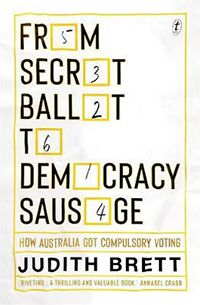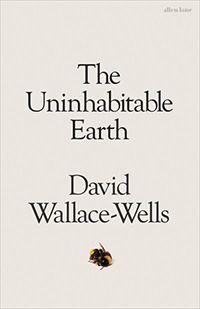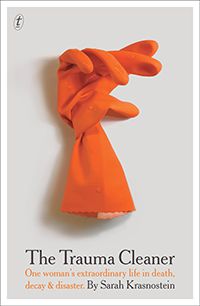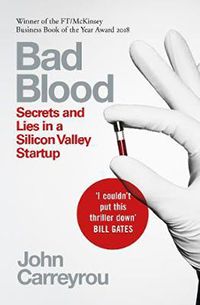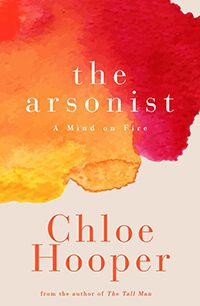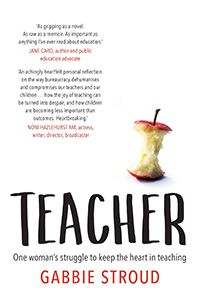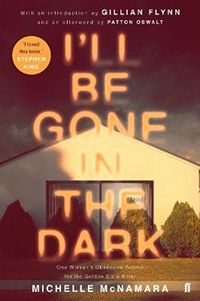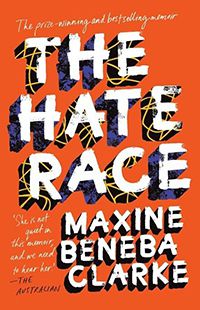For people who struggle to get through works of non-fiction, these compelling reads have all the moving characters, narrative suspense and literary quality of a juicy novel.
From Secret Ballot to Democracy Sausage by Judith Brett
It’s compulsory to vote in Australia. We are one of a handful of countries in the world that enforce this rule. This remarkable fact is something to be proud of, argues Judith Brett in her lively and immensely readable history of our electoral system that our reviewer Julia likened to a thriller. Brett has a knack for making institutions fascinating – as is evident in her award-winning biography of Alfred Deakin – and as we count down to the announcement of a federal election, this is a great read to help brush up on your political know-how.
The Uninhabitable Earth: A Story of the Future by David Wallace-Wells
Climate change feels larger than any of us, but if there’s one book you should read to understand the potential road we’re walking down as a species, it’s this new book by David Wallace-Wells. More than just a prediction of climate change’s impact on our natural world, The Uninhabitable Earth: A Story of the Future examines how societies and everyday life will change as we are forced to reckon with our pummeled planet. What will it do to our politics, economy, culture and sense of history? And what explains the fact we have done so little to stop it? Utilising years of research, The Uninhabitable Earth: A Story of the Future is an urgent account that helps make sense of one of the most pressing issues of our time.
The Trauma Cleaner by Sarah Krasnostein
Born in 1950s Melbourne, Sandra Pankhurst lived through an abusive childhood and a failed marriage with children, before beginning her life again as a drag queen, sex worker and gender confirmation patient in the 1980s. She now works as a trauma cleaner. In this fascinating biography that has won a stack of awards, Krasnostein shares Sandra’s extraordinary life story. Krasnostein is an astute observer of human nature and her understated yet elegant prose had many comparing this book to the works of Helen Garner.
Bad Blood: Secrets and Lies in a Silicon Valley Startup by John Carreyrou
John Carreyrou’s riveting account of the meteoric rise and fall of Silicon Valley biotech start-up Theranos won last year’s Financial Times Best Business Book of the Year Award, and for good reason. Theranos and its founder Elizabeth Holmes fooled Silicon Valley, government officials, and a bevy of big-shot investors into thinking it would revolutionse the medical industry with tech that could make blood tests faster and easier – only the tech didn’t work. Bad Blood reads more like a corporate thriller than a business book, and as Carreyrou peels away one deception after another, you’ll be left gaping and incredulous at the audacity of Holmes and her co-conspirators.
The Arsonist by Chloe Hooper
The Arsonist is a lyrically written and precise investigation of the arrest and trial of Brendan Sokaluk, who was ultimately convicted of lighting the fires on Black Saturday. It takes readers inside the hunt for a fire-lighter, and is at once a remarkable detective story – as the police close in on the offender – and a puzzling psychological study – as defence lawyers seek to understand the motives of this man. One of our best non-fiction books of 2018, this is a true must-read from the celebrated author of The Tall Man.
Teacher by Gabbie Stroud
Gabbie Stroud’s memoir about Australia’s education system and what it’s really like to work within it is an eye-opening account of the stress and pressure (and passion, too) that comes with one of the most essential and undervalued jobs in our society. This powerful memoir generated so much discussion about the value of education, and the problem of burnout, but at its heart is a deeply relatable portrait of a woman struggling to balance her vocational calling with the day-to-day grind of an exacting system – something so many people can sympathise with. As our bookseller Mike says, ‘[Stroud’s] passionate, smartly written memoir puts a human face on the public debates around education in Australia.’
I’ll Be Gone in the Dark by Michelle McNamara
I’ll Be Gone in the Dark is the story of Michelle McNamara’s harrowing, spine-tingling investigation of the 1970s-era rapist and serial killer she dubbed the ‘Golden State Killer’. Sadly, McNamara passed away before she could finish this book, and it was published posthumously with notes from experts filling in the gaps. Amazingly, two years after McNamara’s death and months after the book was published, the police caught the killer – a bittersweet cap to McNamara’s life-long work. Part memoir, part true-crime, this is an unnerving account of a criminal mastermind and the wreckage he left behind and one of the most talked-about books of last year.
The Hate Race by Maxine Beneba Clarke
Suburban Australia. Sweltering heat. Family of five. Beat-up Ford Falcon. Vegemite on toast. Maxine Beneba Clarke’s life is just like all the other Aussie kids on her street. Except for this one, glaring, inescapably obvious thing. In this memoir, Clarke uses nostalgic markers of a middle-class childhood to create a searing depiction of of racism in Australia and how it personally affects the marginalised. As in her fiction and poetry, her voice in this is smooth and lyrical, sincere and ironic, but above all, fierce. Anyone interested in fiction that explores culture and identity, as well as childhood coming-of-age stories, will be equally absorbed in Clarke’s writing.


